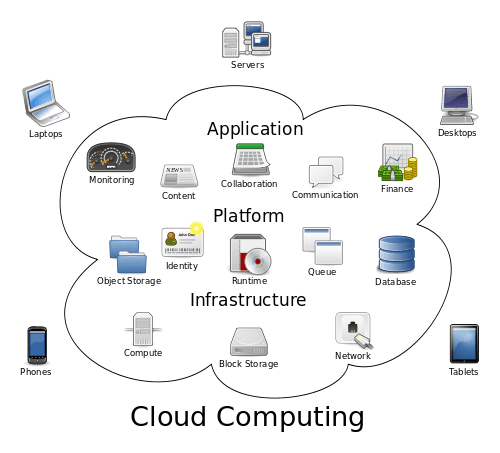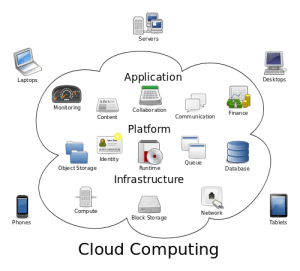As part of a recent post I set about to give a quick and dirty explanation of what is the cloud. I think I did a pretty poor job but I did get my point across. Skip to yesterday, I was meeting with a client whom is attempting to take a small town government from disconnected DOS…yes DOS…systems to a networked and up to date environment. The client is considering a few options for email including cloud based email systems. He asks me “What is the cloud?” and I began the simplified explanation (a little more detailed than the post above). So I thought….I need to write a post on this.
What Is The Cloud?
I’ve been asked this many times by clients and friends who aren’t very tech savvy. Many of them have this idea that “the cloud” is a wonderful do everything tool that can tie your shoes and make dinner for you. The reason for this is that the term “cloud” is now a buzzword that everyone is using to tout their services.
But when we look at the core of “what is the cloud” we see that the cloud is simply…..THE INTERNET. The cloud is a set of interconnected servers. There is nothing new here people.
What Can We Do With The Cloud?
This is the cool part. We are asking “what is the cloud” but we really should be asking how can I use the cloud to benefit my business. Have you ever checked your email online (Gmail, Yahoo, Hotmail, etc)? Then you have used the cloud. Have you ever been on Facebook or Twitter? Then you have used the cloud. All of these online services are cloud based because they reside on the internet (“THE CLOUD”) and not on your personal computer.
This is a paradigm shift from the days of old when you purchased software in the store, took it home, put the CD in your computer and installed it. Now you can even use Microsoft Office in the cloud.
There of course are tons of other cloud based services, here are just a few:
- Dropbox
- Evernote
- Salesforce
- Google Apps
- Office 365
There are A LOT of other cloud apps out there but you get the point.
What are the Risks?
As we move from “what is the cloud” to “how can I make the cloud work for me” we must begin to think about possible pitfalls. The primary concern I see is what happens in the event of a disaster? One benefit of the cloud is redundancy. Meaning that your data is not just on one server. So if Google loses one server or 10 servers my data is (hopefully) still out there on their other servers.
But what happens if there is a worldwide internet disaster and the entire internet blows up? I know it seems far fetched…but what if? If you are depending on cloud data and not backing any data up locally, then you lose everything. This, of course, is assuming that your cloud data provider did not have backups either. So the risk here is minimal.
The more important and realistic concern is security. I recently had a comment on one of my posts regarding data security with app developers. When dealing with cloud data you have to realize that if you can get to it, then other may also be able to. The hope is that your provider is diligent when it comes to security but that threat is always there. There is also the question of “will this company sell my data”. You need to read the privacy policy very closely when dealing with your business data.
These are questions you should ask yourself when you consider putting important business data on the web…I mean Cloud.
So…What is The Cloud?
From Wikipedia
… is a colloquial expression used to describe a variety of different computing concepts that involve a large number of computers that are connected through a real-time communication network (typically the Internet). Cloud Computing is a jargon term without a commonly accepted non-ambiguous scientific or technical definition
I guess that sums it up pretty well.


